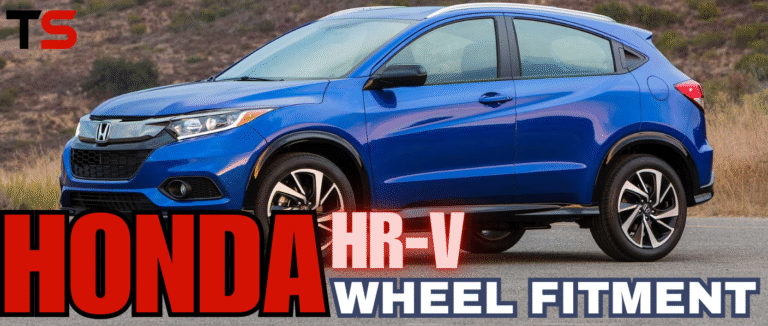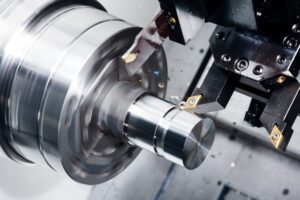The BMW X5 is famous for its luxury and performance. Its advanced engineering makes it a top luxury SUV. When buying this versatile vehicle, consider its engine options. BMW X5 engines range from powerful diesels to eco-friendly hybrids. They suit different driving needs and preferences.
In today’s market, the debate over hybrid and diesel engines is more important than ever. Diesel BMW X5 engines feature high torque and economy. However, hybrid vehicles are a greener alternative. They also provide the flexibility of electrical power. This comparison will evaluate each option’s performance, fuel economy, and driving comfort. It will help you choose the best engine for your needs.
BMW X5 Diesel Engines: Power and Efficiency
Diesel engines are often used in large SUVs, such as the BMW X5. They have excellent torque and fuel economy for lengthy travels. BMW provides diesel options, including the X5 xDrive30d and xDrive40d. They strike a balance between performance and efficiency.
Performance
One of the defining traits of diesel engines is their high torque output. The BMW X5’s diesel engines deliver great power, especially at low revs. They’re ideal for towing and off-roading. The X5 xDrive40d, for example, generates about 335 horsepower and 700 Nm of torque. This combination has good acceleration and can handle difficult terrain and heavy loads with ease.
Fuel Efficiency
Fuel efficiency is an essential consideration for SUV buyers. Diesel engines surpass petrol engines, particularly on lengthy travels. BMW’s diesel engines make use of modern technology to maximise efficiency. They include turbocharging and common-rail direct injection. The X5 xDrive30d can achieve up to 40 mpg (miles per gallon) on the highway. It’s a great choice for long-distance drivers. Diesel engines usually have better highway fuel economy than hybrids. They use less energy at steady, high speeds.
Longevity and Durability
Diesel engines are noted for their durability and reliability. The BMW X5 diesel models are built to withstand high torque. They are less prone to wear, especially when properly maintained. This makes them appealing to individuals who intend to maintain their vehicle for several years.
BMW X5 Hybrid Engines: A Sustainable Powerhouse
With rising environmental concerns, stricter emissions rules are gaining traction. So, hybrid technology is now the focus of the auto industry. BMW’s X5 hybrids, like the xDrive45e, meet growing demands. Hybrid models combine an electric motor and a petrol engine.
Performance
The BMW X5 xDrive45e hybrid pairs a 3.0-litre turbocharged six-cylinder petrol engine with an 80 kW electric motor. Their combined output is about 389 horsepower. This setup gives it a quick 0-60 mph time of 5.3 seconds. It’s nearly as fast as some of BMW’s sportier models. The electric motor’s instant torque ensures a quick, smooth response in the city. The petrol engine provides power for long trips and high-speed cruising.
Fuel Efficiency and Electric Range
The hybrid X5’s best advantage is its fuel efficiency, especially in cities. The xDrive45e has an all-electric range of about 50-54 miles. It can complete short commutes and city driving without using any fuel. This can save fuel costs, especially for drivers who can charge the battery. On longer journeys, the petrol engine takes over. This ensures there’s no range anxiety, which is common with fully electric vehicles.
The BMW X5 hybrid, with its electric motor and petrol engine, gets about 235.4 mpg. This varies with driving style and use of electric-only mode. For city dwellers or short-distance drivers, hybrids are better. They are more fuel-efficient and eco-friendly than diesel engines.
Environmental Impact
Hybrids have a clear edge in emissions. They can run in zero-emission electric mode for long distances. The xDrive45e emits as little as 27g/km of CO2, compared to the xDrive30d’s CO2 emissions of around 183g/km. The hybrid X5 has a lower environmental footprint. It’s a better option for eco-conscious drivers and those in areas with strict emissions rules, like low-emission zones in cities.
Driving Experience: Hybrid vs Diesel
When it comes to the overall driving experience, both the hybrid and diesel BMW X5 offer distinct sensations on the road.
Diesel
The diesel X5 feels very powerful, especially on highways and when towing. The diesel engine’s high torque makes it ideal for long drives. It offers consistent power without needing frequent gear changes. It is popular with drivers who often use motorways. It suits those who need to tow caravans or trailers.
Diesel engines have downsides. They are noisier than hybrids. Their appeal is falling due to environmental concerns and stricter regulations.
Hybrid
The hybrid X5, however, is quieter and more refined. This is especially true in electric-only mode. The electric motor’s instant torque gives a smooth, effortless feel when accelerating from a stop. It is perfect for city driving. Moreover, the transition between electric and petrol power is seamless. It allows drivers to enjoy the best of both worlds.
The hybrid X5, on the other hand, is quieter and more refined. It drives best in electric-only mode. The electric motor’s instant torque gives a smooth, effortless feel when starting. This makes it ideal for city driving. Also, the switch from electric to petrol power is seamless. It lets drivers enjoy the best of both worlds.
Cost Considerations
The BMW X5 hybrids cost more than the diesels. This is mainly due to the extra technology in the hybrids. However, savings in fuel may offset the cost difference over time. This is especially true for drivers who maximise the electric-only range.
Furthermore, hybrid vehicles may be eligible for lower road taxes and other government incentives in many regions. This can further lower ownership expenses. On the other hand, diesel engines are more durable and require less fuel for long travels. Frequent long-distance drivers may find them more cost-effective.
Conclusion: Which BMW X5 Engine is Right for You?
Choosing between the hybrid and diesel BMW X5 depends on your driving habits and priorities. If you often drive long distances, consider the diesel X5. It has high torque for towing and a lower price. Its highway fuel efficiency and strong performance make it ideal for those who need power.
If you mostly drive in cities, the BMW X5 hybrid is your best option. It is eco-friendly and can drive on electric power only. It has great fuel economy and low emissions. It can switch between electric and petrol power as needed.
In the end, both engines deliver the luxury and performance that BMW is known for. They also have cutting-edge tech. So, the X5 is a top choice in the luxury SUV market, no matter which engine you prefer.









